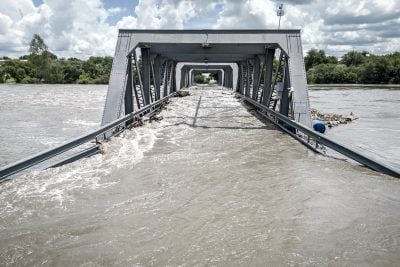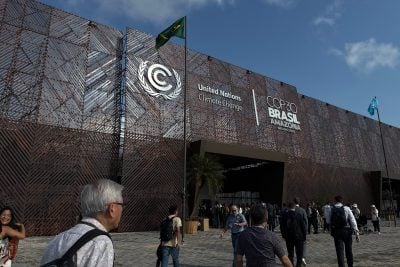It was to the sound of South Sudanese and Sudanese music that Sudan’s transitional government signed a peace agreement with various rebel groups operating on the peripheries of its vast and mostly arid territory in early October.
The landmark deal was signed in South Sudan’s capital city Juba, reflecting a history of conflict and occasional cooperation between two countries that were joined together until South Sudan’s independence in 2011, following decades of civil war.
Many of the armed groups that were locked in low-level conflict with Sudan’s former dictator Omar al-Bashir, who was ousted in 2019, were supported and created by the Sudan People’s Liberation Army (SPLA), once a South Sudanese guerilla movement and now South Sudan’s regular army.
The agreement marked a step towards peace in Sudan itself as well as a reduction in hostilities between the two sovereign nations. The reduced risk of conflict and proxy warfare could have a positive impact on South Sudan’s oil sector, which relies almost exclusively on a pipeline running through Sudan to export its crude. In September, the countries signed a draft agreement to increase oil production in two fields in South Sudan and provide more crude oil to a power plant and refinery in Sudan.
“The war in Sudan always constituted a risk to oil facilities in Kordofan and in other places near the border,” says Brian Adeba, deputy director of policy at The Sentry, a US-based investigative research organisation. “There is an element of risk with the transport of oil from the pipeline all the way to the Red Sea coast. By bringing onboard many actors, the risk to oil production in Sudan and South Sudan has been reduced significantly.”
Problems for South Sudan’s oil sector
Despite the positive developments, South Sudan’s oil sector faces myriad problems.
The governing elites in Juba, who have a stranglehold on South Sudan’s oil sector, are still undecided about how to conduct future relations with the civilians who share power with the military in Sudan’s transitional government, leaving open the possibility of future disagreement.
“They [South Sudan] have not been very comfortable or interested in dealing with the civilian side, which they don’t trust,” says Alan Boswell, senior analyst for South Sudan at Crisis Group. “They view the military as the real power brokers, so they want to make sure they have ties there.”
Though South Sudan’s independence leaders waged a bloody war with the government in Khartoum for decades, the former adversaries understood that cooperation on the Greater Nile Oil Pipeline is of mutual interest.
In 2012, South Sudan agreed to pay $26 for each barrel of oil passing through the pipeline, which was built by the Sudanese government and started operating in 1999 before the separation.
At the time of al-Bashir’s ouster, Juba and Khartoum had settled on a more or less constructive relationship. The agreement was extended last year under the transitional government until March 2022, suggesting that the two parties will continue to cooperate around oil. However, the transitional government in Khartoum presents a new dynamic for South Sudanese politicians and the uncertain relationship could lead to a situation where cooperation is no longer assured.
Battered economy
Meanwhile, Covid-19 and the drop in global oil prices have done further damage to South Sudan’s already hollow economy and negatively impacted the oil sector.
Even before the external shocks, the state had ceased to function as proceeds from the oil sector were whittled away due to corruption. Civil servants report not being paid for months and rampant inflation has made salaries almost worthless. According to a UN report in September, high-ranking politicians and bureaucrats have stolen at least $36m in public funds since 2016.
South Sudan’s unity government, formed in February to end six years of civil war, is seen by critics as little more than a shared agreement to ensure that both sides benefit from the state’s financial patronage. President Salva Kiir and first vice-president Riek Machar – both former independence fighters – remain locked in an uneasy power-sharing agreement.
If oil wealth is not split equally between both parties, the agreement could be in peril, analysts say.
In a country where 90% of government revenue comes from the oil sector, the oil price plunge poses problems for South Sudan’s elites and may jeopardise the stability of government.
“The less lucrative it becomes the harder and harder it is for South Sudan to continue betting on itself as a petrostate,” says Crisis Group’s Boswell. “When the oil price collapses it decimates the budget.”
Severe flooding has also displaced more than 600,000 people since July, leading to a drop in output in key areas. The target set by the petroleum ministry at the beginning of the year of producing 200,000 barrels a day is looking increasingly unlikely to be achieved.
Port blockade threatens exports
Recent unrest in Sudan’s largest port is another issue threatening oil hopes in South Sudan. Though Sudan has brokered an agreement with rebel groups in the south, other regions claim they have been historically marginalised and fear being left out of the new settlement.
Angry protestors in Port Sudan and elsewhere in eastern Sudan have blocked roads and threatened to seize oil infrastructure, following widespread demonstrations over the peace deal signed in Juba. The demonstrations are led by indigenous Beja tribes, a group that suffered a massacre at the hands of al-Bashir’s security forces in 2005.
There are now calls for secession in the region, and the flashpoint has the potential to adversely affect the oil industries of both countries. After success in one area, Sudanese prime minister Abdalla Hamdok must instantly turn to another, say analysts.
“The Beja tribes blew up the pipeline in the 1990s a few times, they were a significant threat to the pipeline back then,” says The Sentry’s Adeba. “The threat is always there and the Sudanese government should take these concerns seriously.”
Business remains bullish
Despite the problems, South Sudan’s largest independent energy company, Trinity Energy, is confident that the sector will continue to grow. Trinity plans to enlist US firm Chemex to build a $500m crude oil refinery in South Sudan’s Upper Nile State, with the aim of distributing refined petroleum products to the East African region by road.
There are a mix of players in South Sudan’s oil sector, including some risk-tolerant Chinese and American companies. The firms are encouraged by the fact that South Sudan has the third-largest oil reserves on the continent after Libya and Nigeria. The government plans to offer 14 new oil blocks for exploration in an upcoming licensing round that is expected to gather a lot of attention.
“All the major trading houses are interested in new fields like this,” Robert Mdeza, chief executive of Trinity Energy, tells African Business. “It is an opportunity that people should not miss.”
Want to continue reading? Subscribe today.
You've read all your free articles for this month! Subscribe now to enjoy full access to our content.
Digital Monthly
£8.00 / month
Receive full unlimited access to our articles, opinions, podcasts and more.
Digital Yearly
£70.00 / year
Our best value offer - save £26 and gain access to all of our digital content for an entire year!
 Sign in with Google
Sign in with Google 



